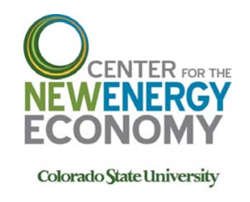 There is a lot of activity happening throughout the United States with respect to Renewable Portfolio Standards (RPS) legislation for the year. To keep people informed, the Center for the New Energy Economy (CNEE) has published a Summary of State Renewable Portfolio Standard Legislation in 2015 brief. To date, 87 distinct bills have been introduced in 32 states although only two bills have actually been enacted.
There is a lot of activity happening throughout the United States with respect to Renewable Portfolio Standards (RPS) legislation for the year. To keep people informed, the Center for the New Energy Economy (CNEE) has published a Summary of State Renewable Portfolio Standard Legislation in 2015 brief. To date, 87 distinct bills have been introduced in 32 states although only two bills have actually been enacted.
The brief categorizes the bills into three categories:
- Rollback: includes outright repeals, reductions to targets delays in target dates, exceptions for utilities and bills to extend eligibility for non-renewable fuels or existing large capacity hydroelectric resources;
- Increase: would create a larger market by expanding renewable generation targets, creating new carve-outs or requiring compliance by additional utility-types; and
- Modification: addresses the mechanics of how an RPS program is implemented.
Here is the topline for 2015:
- To date, RPS legislation has been introduced in 32 states. Of the 87 bills, only two have been enacted. A bill in West Virginia repealed the state’s standard and legislation in New Mexico enacted a modification to include a new definition for thermal energy and include Renewable Energy Credits (RECs) to be issued to rural electric cooperatives for generating thermal energy from geothermal resources.
- The percentage shares by category of legislation have shifted over the last three years. RPS increase legislation was more common in 2015 as a percentage of all introduced legislation, than in 2013 and 2014.
- Legislation to increase or rollback an RPS does not appear to be correlated with state policy target dates.
- The most common policy type continues to be modifications to existing RPS policies with revisions to resource eligibility clauses have making up the majority of these bills for the past three years.
Many states’ legislative sessions are still underway and the Center for the New Energy Economy keeps real-time track of changes. Click here to download the brief.

